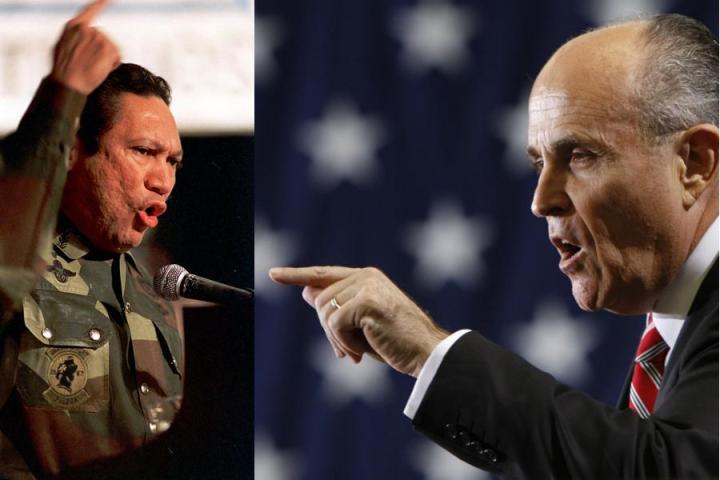
Giuliani contended that, should the lawsuit succeed, it would send us down a dangerous, slippery slope toward censorship. “The reason I’m involved in this case is I see the significance of the First Amendment,” he said. “Should Noriega be allowed to succeed, it would virtually destroy the historical novel, the historical movies like The Butler and Zero Dark Thirty, in which historical figures are portrayed. If Noriega were to succeed in this case, as I told the judge, Bin Laden’s heirs would be able to sue for Zero Dark Thirty.”
Related: Former NYC mayor Rudy Giuliani to represent Activision against Manuel Noriega
His response then turned into a personal attack on Noriega: “I think a man that engaged in selling $200 million of cocaine in the United States, who knows how many children he killed, a man who was a dictator of his country in which he tortured people for nine years, a man who laundered money in France, a man who chopped the head off of one of his allies and then was convicted in three countries, who is sitting in jail in Panama, trying to recover because he is a minor, minor figure in a very excellent game, Call of Duty by Activision, is an outrage,”
Noriega, for his part, responded to Activision Blizzard’s motion to dismiss with a statement clarifying his position. “I first became aware that my image and likeness was being utilized in Call of Duty: Black Ops II,” the former Panamanian dictator explained, “when my grandchildren played the game and asked why, in the video game, their target was to capture my character.”
Incidents such as this and Lindsay Lohan’s similar lawsuit against Rockstar Games over Grand Theft Auto V are setting important, legal precedent for the future of gaming. As the medium grows up and starts to tackle more serious subject matter, it will fall under increasingly serious scrutiny. The path from entertainment to art form is fraught, but these uncomfortable conversations are vital to the medium’s future.


